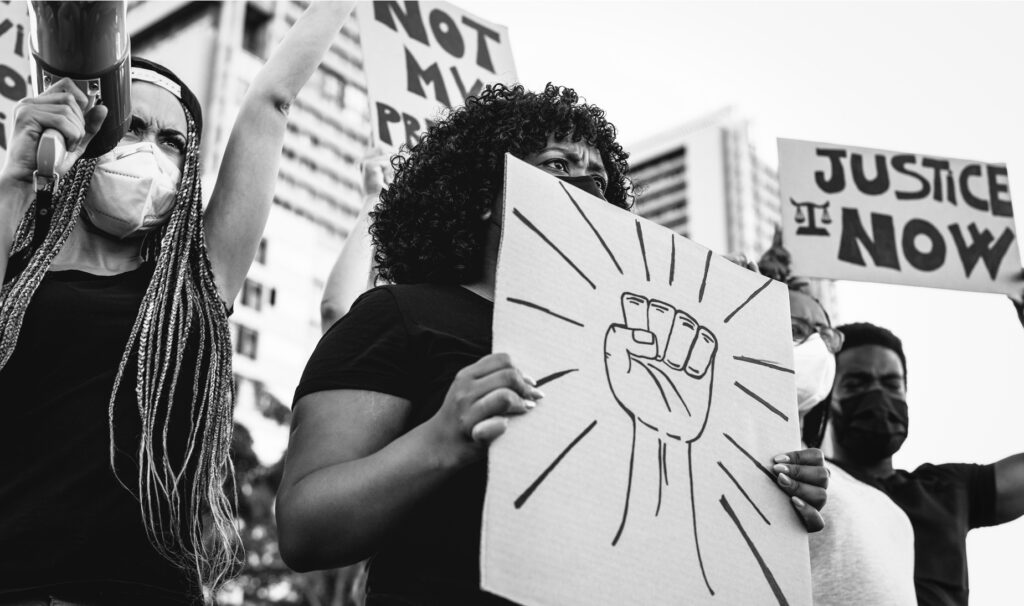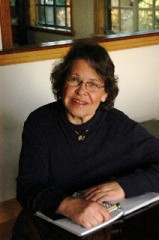WNBA-SF Past President Brenda Knight interviewed Ruth Weiss in 2017. Now that we near the first anniversary of her passing, we wanted to bring you this interview of hope and writing…
 Beat poet and jazz spoken word innovator Ruth Weiss started writing as a teen and, at the age of 88, has not stopped. A contemporary of Jack Kerouac, Neal Cassady, and Allen Ginsberg, Weiss is one of the most important voices of the Beat Generation whose work remains fresh, relevant and more modern than ever. A holocaust survivor, she urges writers to “be truth tellers in your work and in your words.” Below is an interview of Weiss with WNBA-SF President Brenda Knight, author of Women of the Beat Generation, and includes a discussion of Weiss’s advice to young writers and scribes of all ages.
Beat poet and jazz spoken word innovator Ruth Weiss started writing as a teen and, at the age of 88, has not stopped. A contemporary of Jack Kerouac, Neal Cassady, and Allen Ginsberg, Weiss is one of the most important voices of the Beat Generation whose work remains fresh, relevant and more modern than ever. A holocaust survivor, she urges writers to “be truth tellers in your work and in your words.” Below is an interview of Weiss with WNBA-SF President Brenda Knight, author of Women of the Beat Generation, and includes a discussion of Weiss’s advice to young writers and scribes of all ages.
BK: How did you come to America?
RW: My family was on the last train out of Vienna before the Nazis put the Jews in the camp. Most of our family died in the concentration camps. We knew we had to get out of Europe if we were to survive. We were silenced. I will not be silenced.
BK: When did you know you were a writer?
RW: I think I always knew it; Vienna was a center for the arts before the war. Inspiration was everywhere. In America, everything was wide open. You could do anything, be anything.
BK: Is it fair to say you hit the road way before Jack Kerouac?
RW: Yes, and he and I talked about that. He liked the idea of a girl with green hair hitchhiking back and forth across America. I’ve been dying my hair different colors almost as long as I’ve been writing poetry. Jack and I really connected over haiku and would spend hours talking about the beauty of that form and would read and write haiku together.
BK: Are you particular about your writing desk you tools and environment for composing?
RW: I still use an Underwood typewriter and make sure my writing space is in good order. I never know when inspiration might strike and can sit down, put in a sheet of paper and write a new poem.
BK: Did you experience any problems as a young woman in the San Francisco poetry scene?
RW: Oh, yes. Most of the other poets were very accepting and encouraging, but a few wanted control. Allen Ginsberg was very competitive and even tried to keep me from reading sometimes and physically blocked me from the stage once. I know that will shock some people but it is the simple truth. For the most part, all the poets on the scene over time have been beautiful, peaceful, loving people. I have gotten a lot of support over the years and count these poets as my friends.
BK: What is the story behind your decision to keep your name lower case?
RW: Every time I sign my name, it is a revolutionary act, my way of standing up to the control of the “law and order” Germans in the ’30’s whose demand for control led to WWII and Nazis murdering millions of people, including my family. My name is a form of resistance.
BK: We have a so-called “law and order” president of the United States now; what do think about that?
RW: I take it as a warning and I have also noted that writers, artists and poets are sounding the calls to action.
BK: What is your best advice for writers, particularly women and young people?
RW: Many writers suggest you write every day at a certain time and I know that works for a lot of people. My advice is “less is more.” Never overwrite or just keep writing. Spare use of language, only using the right words will lead to better work, get you closer to greatness. Tell the truth in your truest voice and your work will be pure and beautiful.
Following in an excerpt from one of Ruth’s poems upon moving to San Francisco:
i’m 22.
don’t think i’ll make it to 30. don’t think. write.
words are my friends. words are wings. protect.
i have a room of my own. i shall always have a room of my own. that i will. this cancer girl gotta have a room of her own.
one by one the ones who must play—enter.
the search for that note—that only one. it’s a jam for the
heartbeat. no feet tapping. no hands clapping.
i walk slow through daybreak-blue. back to north beach.
my lids fold around my whole being.








 Anniqua Rana, who lives in the Bay Area, is the author of
Anniqua Rana, who lives in the Bay Area, is the author of  As a consultant and professor of strategic management, Marlena Fiol, PhD, guided her students and clients in coming to know themselves deeply, visualizing their dreams and identifying and removing the barriers to achieve them. Over half of her 85 published articles and books relate to identity and identity change. Her work has been cited over 20,000 times.
As a consultant and professor of strategic management, Marlena Fiol, PhD, guided her students and clients in coming to know themselves deeply, visualizing their dreams and identifying and removing the barriers to achieve them. Over half of her 85 published articles and books relate to identity and identity change. Her work has been cited over 20,000 times. 
 You polish your writing, imagining your audience. You read it over. Out loud. Does it say exactly what you want it to say? You have a friend read it to you. Impressed, she says, “You should submit this to contests. Put yourself out there. Get some recognition for your work.”
You polish your writing, imagining your audience. You read it over. Out loud. Does it say exactly what you want it to say? You have a friend read it to you. Impressed, she says, “You should submit this to contests. Put yourself out there. Get some recognition for your work.”
 Wooden spoon puppets can create holiday magic.
Wooden spoon puppets can create holiday magic.  Kate Farrell,
Kate Farrell,